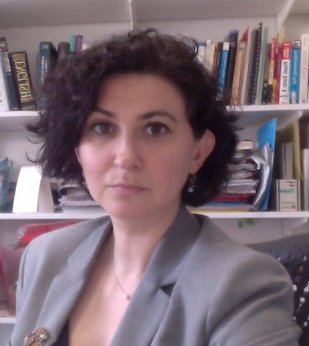
• Philippe Dessus (Université Grenoble Alpes) –
is a full Professor in educational Sciences and a member of the LaRAC (Laboratory for research in Acquisitions in Context) at univ. Grenoble Alpes, France, laboratory he headed from 2013 to 2016. His research focuses on building and validating computer-based systems which deliver automated feedback for learning, in diverse contexts like text writing or reading. He is notably involved in the development of ReaderBench (http://readerbench.com), a multipurpose and multilingual text analyzer. He is also working on teacher’s cognition, related to planning and interaction phases, and specializes in the use of the Classroom Assessment Scoring System, a reliable way to observe teacher-students interactions. More recently he is working on context-aware classroom to capture and analyze multimodal information on learning and teaching events.
Intelligent Classrooms to Understand Instructional Events: an Ecological Approach
From 2000 on, a large extent of research have been developed on “smart classrooms”, i.e., any physical environment in which instructional and learning events occur, supported by several digital devices using models and techniques to capture, analyze, and assist these events. They were largely focused on the implementation of assistive features, transforming classrooms into educational “show rooms” with a solutionist flavor. More recently, and thanks to the development of learning analytics and high-end signal processing techniques, smart classrooms have become more and more used as instruments to better understand what is going on in classrooms: e.g., students engagement or learning, teachers’ actions.
The aim of this talk is, first, to review and categorize the main types of intelligent classrooms and their architecture, using an ecological psychological framework. Then, various instructional actions will be considered with the ways to capture and analyze them in smart classrooms. Eventually, we will review the main critical stances on these environments: surveillance, privacy concerns, as well as their benefits: teacher development and evidence-based learning research avenues.

• Kaśka Porayska-Pomsta (University College London)
is Professor of Artificial Intelligence in Education at the University College London, IOE UCL’s Faculty of Education and Society, UCL Knowledge Lab. Her research and practice aim to strike a balance between the needs of learners and practitioners in real world educational contexts and the design and engineering constraints related to creating and deploying Intelligent Learning Environments at the front line of education. Diversity, inclusion and trustworthy Artificial Intelligence in Education represent key themes throughout her research. She has substantial experience of working with diverse learners, including young children, and designing and evaluating AI technologies to support their learning and development. As a member of the management committee for the Bloomsbury Centre for Educational Neuroscience, the executive committee for the International Society for Artificial Intelligence in Education, and steering committee for the UCL/Wellcome Trust Translational Partnership, she offers interdisciplinary insights that leverage engineering, learning sciences and human cognition, along with the ethics of AI in education dimensions.
Actioning the universal principles of ethical AI: an example of ethical AI in education
Questions about the ethics of Artificial Intelligence (AI) are of critical importance to our ability to develop and utilise AI for human benefit. Ethical AI has recently emerged as a concept and as an area of interdisciplinary research, with numerous accounts being now available of the ethical issues brought about by indiscriminate and often premature deployment of AI technologies in everyday contexts. The contexts vary between relatively low-stakes applications such as selecting movies on streaming apps, to high-stakes applications that aim to support human learning. Accompanied by those accounts are also efforts to regulate AI technologies now and in the future. Hundreds of policy guidelines and academic recommendations for ethical AI have been produced to date, highlighting dimensions such as trustworthiness, fairness, bias, transparency, accountability, equity, and human autonomy as key to addressing the ethical challenges presented by AI’s increasing presence in people’s daily activities. Although Many of the recommendations available are transversal, they also tend to be aspirational in nature. Furthermore, whilst there is a necessity for creating universal principles for ethical AI, such principles tend to be difficult to action and evaluate in specific applications and contexts in which they are deployed. In this talk, I will introduce some of the main ethical challenges identified broadly for AI in order to interrogate how these challenges become manifest in a high-stakes domain such as AI in education, and how they can be addressed in an actionable way at different stages in AI design, deployment and use.

• Yves Punie (EC JRC – Unit Human Capital and Employment)
is senior scientist and Acting Head of Unit at the European Commission Joint Research Centre in Seville, Unit Human Capital and Employment. He has been working on “Digital Learning and Skills” since 2005 with the aim to provide evidence-based policy support to the European Commission on harnessing the potential of digital technologies to innovate education and training practices, improve access to lifelong learning and to deal with the rise of new (digital) skills and competences needed for employment, personal development and social inclusion.
Recent work on capacity building for the digital transformation of education and learning, and for the changing requirements for skills and competences has focussed on the development of digital competence frameworks for citizens (DigComp), educators (DigCompEdu), educational organisations (DigCompOrg) as well as frameworks on Personal, Social and Learning to Learn (LifeComp) and entrepreneurship (EntreComp). Some of these frameworks also have self-reflection tools (SELFIE, SELFIEforTeachers). The most recent framework released in January 2022 is GreenComp, the European sustainability competence framework.
Before joining the JRC in 2001, he was interim Assistant Professor at the Free University of Brussels (VUB). He holds a Ph.D. in Social Sciences.
Shifting to competence-based learning and digital education in Europe. A view from European research and policy.
Digital education and digital skills are high on the European agenda, as well as competence-based learning and key competences for lifelong learning. These are all needed for addressing the competences and skills required for our changing society and economy. The EC Joint Research Center has developed a number of research-based competence frameworks (LifeComp, GreenComp, EntreComp, DigComp, DigCompEdu, DigCompOrg) and self-reflection tools (SELFIE, SELFIEforTeachers) which are widely used in Europe and beyond. The presentation will provide evidence on the use of these frameworks and tools towards competence-based learning and digital education, highlighting also opportunities and challenges for research and policy.
